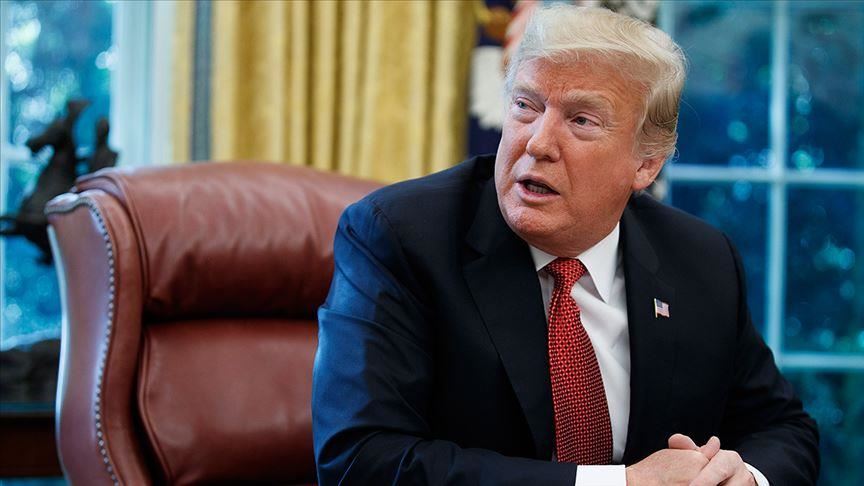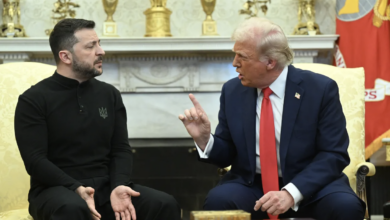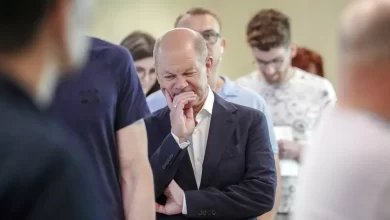President Donald Trump said Thursday he hopes war with Iran is not inevitable as tensions continue to run at a fever pitch between the rivals.
Asked by a reporter at the White House if Washington and Tehran are headed to war, Trump responded nonchalantly “Hope not.”
House Speaker Nancy Pelosi, however, was quick to emphasize that constitutionally it is Congress’ sole responsibility to declare war.
“So, I hope that the president’s advisers recognize that they have no authorization to go forward in any way,” Pelosi said in a likely swipe at National Security Advisor John Bolton, a noted Iran hawk who failed to sway former President George W. Bush to attack Iran.
“They cannot call the Authorization for the Use of Military Force that was passed in 2001 as any authorization to go forward in the Middle East now,” she said, referring to an authorization that has been broadly interpreted by successive presidents, but which specifically approves operations against al-Qaeda and associated forces.
It is unclear how those authorizations could possibly be used to justify an attack on Iran, an enemy of al-Qaeda.
Trump said Wednesday he is “sure” Iran will want to engage in dialogue “soon” amid a U.S. military buildup in the Middle East that his administration says is geared towards deterring unspecified threats from Tehran.
Neither Trump nor his top officials have elaborated on the nature of those alleged threats as the U.S. sends an aircraft carrier and B-52 bombers to the region in what they call a precaution to deter any potential attack from Iran.
The U.S. has also ordered the departure of non-essential staff from its diplomatic offices in Iraq.
Four oil tankers were targeted off the United Arab Emirates in what is being called a sabotage attack, and a Saudi oil pipeline was targeted with drones claimed by Yemen’s Houthi rebels.
Trump inflamed tensions with Iran when he unilaterally withdrew Washington in May 2017 from a landmark nuclear accord world powers struck with Iran. The Trump administration has repeatedly called on its fellow negotiators, including the UK, Germany, France, Russia, China and the EU to leave the deal, but none have.
They argue that the 2015 accord is the best way to prevent Iran from acquiring a nuclear weapon, and warned Trump prior to his formal exit that leaving the deal and seeking to scuttle it would inflame tensions, which it has.
Close European allies have been working to save the agreement, angering Washington which has taken successive steps to undermine it, including reimposing U.S. oil sanctions that were lifted as part of the pact.
[adrotate banner=”71″]
 Donald Trump says Zelensky ‘come back when he is ready for Peace’
Donald Trump says Zelensky ‘come back when he is ready for Peace’ German elections and why this vote is important
German elections and why this vote is important Turkey Arrests Three Opposition Journalists
Turkey Arrests Three Opposition Journalists House of Representatives remains with the Republicans
House of Representatives remains with the Republicans